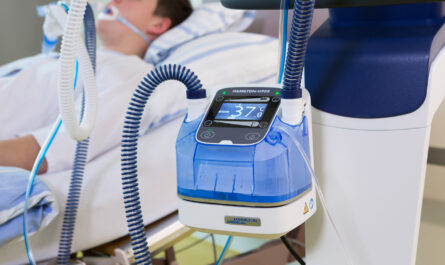
What is Shigella?
Shigella is a genus of bacteria that can cause shigellosis, which is also known as bacillary dysentery. There are four species of Shigella – S. dysenteriae, S. flexneri, S. boydii, and S. sonnei. Shigella bacteria spread from the intestines of infected people to the intestines of others through contaminated water or food, or through direct contact with the stool of infected people. Shigella Test Kit infection often results in diarrhea which may contain blood or mucus. It usually lasts 5-7 days but may last longer in some cases.
Symptoms of Shigella Infection
Some common symptoms of Shigella infection include:
– Abdominal cramps – Patients usually experience severe abdominal pain and cramping.
– Diarrhea – Frequent and loose or watery stools are the hallmark of Shigella infection. Stools may contain blood, mucus or pus.
– Fever – Fever over 102 degrees Fahrenheit is common.
– Nausea and vomiting – Nausea and vomiting may or may not occur, especially in children.
– Tenesmus – An urge to pass stool even when the bowels are empty.
– Dehydration – Severe diarrhea and vomiting can lead to dehydration, especially in young children, elderly people and those with weak immune systems.
Importance of Early Detection
Early detection of Shigella infection is very important as it helps in prompt treatment and prevents further spread of the disease. Left untreated, Shigella infection may lead to severe complications like seizures, meningitis, rectal prolapse etc. Shigellosis outbreaks can seriously affect public health. Shigella test kits help in confirming the presence of Shigella bacteria in stool samples and allowing early diagnosis and treatment.
How Do Shigella Test Kits Work?
Shigella test kits are diagnostic tools that can detect Shigella antigen or DNA in stool samples. Here is a brief overview of how different types of Shigella test kits work:
– Lateral Flow Immunoassays: These rapid tests detect Shigella antigens in stool samples using immunochromatographic techniques. Results are available within 15-30 minutes.
– Enzyme Immunoassays: Involves use of antibodies for detection of Shigella antigens coated onto wells. Gives color change on reaction. Results are available within 1 hour.
– Polymerase Chain Reaction (PCR) Tests: Detect genetic material (DNA) of Shigella using techniques like real-time PCR. Highly sensitive and specific but results take 1-2 days.
– Culture Tests: Considered gold standard. Involves inoculation of stool sample onto selective growth media followed by biochemical tests for confirmation. Takes 2-5 days for results.
Types of Specimens Collected
Any of the following types of specimens can be collected and tested using Shigella test kits:
– Stool specimen: Collect a small amount (about half teaspoon) of loose stool directly into a sterile, leak-proof container without any preservatives.
– Rectal swab: Insert a sterile cotton swab 1-2 cm into the rectum and rotate it gently against the rectal lining. Put swab into transport medium.
– Drainage from ulcers: Collect drainage fluid directly or using a sterile swab from any rectal ulcers present.
Importance of Proper Specimen Collection
It is crucial to collect specimens properly as per the kit instructions for accurate test results. Key points to remember are:
– Collect sufficient amount of sample.
– Avoid contamination with urine, water or other material.
– Keep sample cool and transfer to lab quickly for testing.
– Provide detailed patient history and symptoms for correct diagnosis.
– Follow biosafety measures while collecting, storing and transporting specimens.
Benefits of Using Shigella Test Kits
The main advantages of using reliable Shigella test kits include:
– Rapid results – Many kits provide results within hours compared to days taken by culture.
– High sensitivity and specificity – Modern kits can detect even low levels of Shigella with over 95% accuracy.
– Early diagnosis – Helps clinicians start prompt treatment before complications develop.
– Outbreak management – Useful surveillance tool during outbreak investigation and management.
– Cost-effective – Low-cost rapid tests remove need for expensive culture facilities.
– Easy to use – Minimal training required. Most kits have simple step-by-step procedures.
– Safe – Help reduce risks associated with culture-based methods through containment.
– Screening tool – Can screen large populations and prioritize patients requiring cultures.
Hence, using good quality shigella test kits is an effective way to detect the presence of Shigella bacteria in clinical samples and facilitate early management of shigellosis. Proper specimen collection and adherence to kit instructions are must for reliable results



